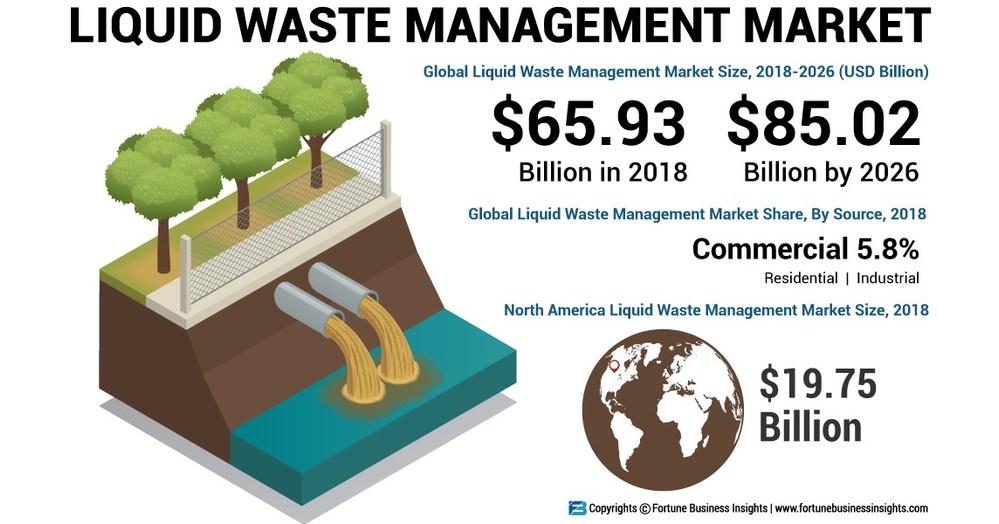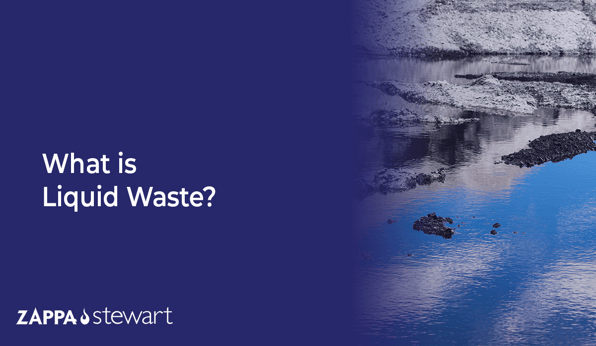Little Known Facts About Reclaim Waste.
Table of ContentsFascination About Reclaim WasteGetting My Reclaim Waste To WorkThe Single Strategy To Use For Reclaim Waste5 Easy Facts About Reclaim Waste DescribedThe Ultimate Guide To Reclaim Waste
Explore the types, events, and types of fluid waste. Residential sewer waste describes the waste and products from a residential septic system. This kind of waste is created by human beings in homes, schools, and various other buildings. This only includes septic containers that have a drain field. The appropriate management and disposal of domestic sewer waste call for liquid waste to be moved to a sewage therapy plant where the proper techniques and tools are related to detoxify and deal with waste.
Business waste typically consists of prospective threats, such as flammable products or a mixture of fluid and solid waste items, and requires a much more innovative and thorough disposal process. The disposal of industrial waste typically entails the filtration of waste before transportation to make certain safe and correct disposal. Hazardous waste is developed from byproducts and runoff of industrial procedures and manufacturing.
This sort of waste can not use the exact same sewer monitoring transportation or processes as septic or commercial liquids. The hazardous waste administration procedure calls for the inspection and testing of liquid waste prior to it undertakes the disposal procedure (industrial wastewater treatment). Drainage waste is the fluid waste that originates from drainage and excess stormwater in very booming locations or cities
Drainage waste can create contamination and flooding otherwise handled correctly. Discover more regarding sewer cleaning and waste monitoring. Guaranteeing proper waste management can avoid catastrophes and decrease ecological injury. Both people in property settings and professionals in commercial or production industries can gain from recognizing the processes and policies of fluid waste monitoring.
What Does Reclaim Waste Do?
Call PROS Solutions today to find out about our waste administration and disposal services and the appropriate means to take care of the fluid waste you create.
(https://giphy.com/channel/reclaimwaste1)This so-called 'wastewater' is not just a crucial resource however, after treatment, will be launched to our land, waterways or the ocean. Used water from bathrooms, showers, bathrooms, kitchen area sinks, washings and industrial processes is recognized as wastewater.

water utilized to cool equipment or tidy plant and devices). Stormwater, a type of wastewater, is runoff that streams from farming and metropolitan locations such as roofings, parks, gardens, roadways, paths and rain gutters into stormwater drains pipes, after rain. Stormwater moves untreated straight to local creeks or rivers, ultimately reaching the sea.
Some Ideas on Reclaim Waste You Need To Know
In Queensland, most wastewater is treated at sewer therapy plants. Wastewater is transported from residential or commercial websites via a system of drains and pump stations, known as sewerage reticulation, to a sewer therapy plant.
The Department of Natural Resources encourages regional governments about handling, operating and keeping sewerage systems and treatment plants. In unsewered locations, city governments may call for owners to set up private or home sewer therapy systems to treat residential wastewater from commodes, kitchen areas, shower rooms and washings. The Division of Natural Resources visit the website authorises the use of house systems when they are verified to be efficient.
In some new subdivisions, therapy of some stormwater to eliminate litter, sand and crushed rock has started utilizing gross pollutant traps. Wastewater therapy happens in four stages: Gets rid of solid issue.
Uses tiny living microorganisms understands as micro-organisms to damage down and remove remaining liquified wastes and fine particles. Micro-organisms and wastes are incorporated in the sludge.
A Biased View of Reclaim Waste
Nutrient removal is not available at all sewage therapy plants due to the fact that it needs pricey specialised equipment. Clear fluid effluent generated after therapy may still contain disease-causing micro-organisms - liquid waste removal melbourne.

Most wastewater moves into the sewage system. Under the Act, local federal governments provide authorizations and licences for eco appropriate tasks (Ages) entailing wastewater releases that could have a regional influence.
The Reclaim Waste Ideas
Tracking supplies valid info concerning water top quality and can validate that licence conditions are being satisfied. The info gotten with tracking provides the basis for making water quality decisions.